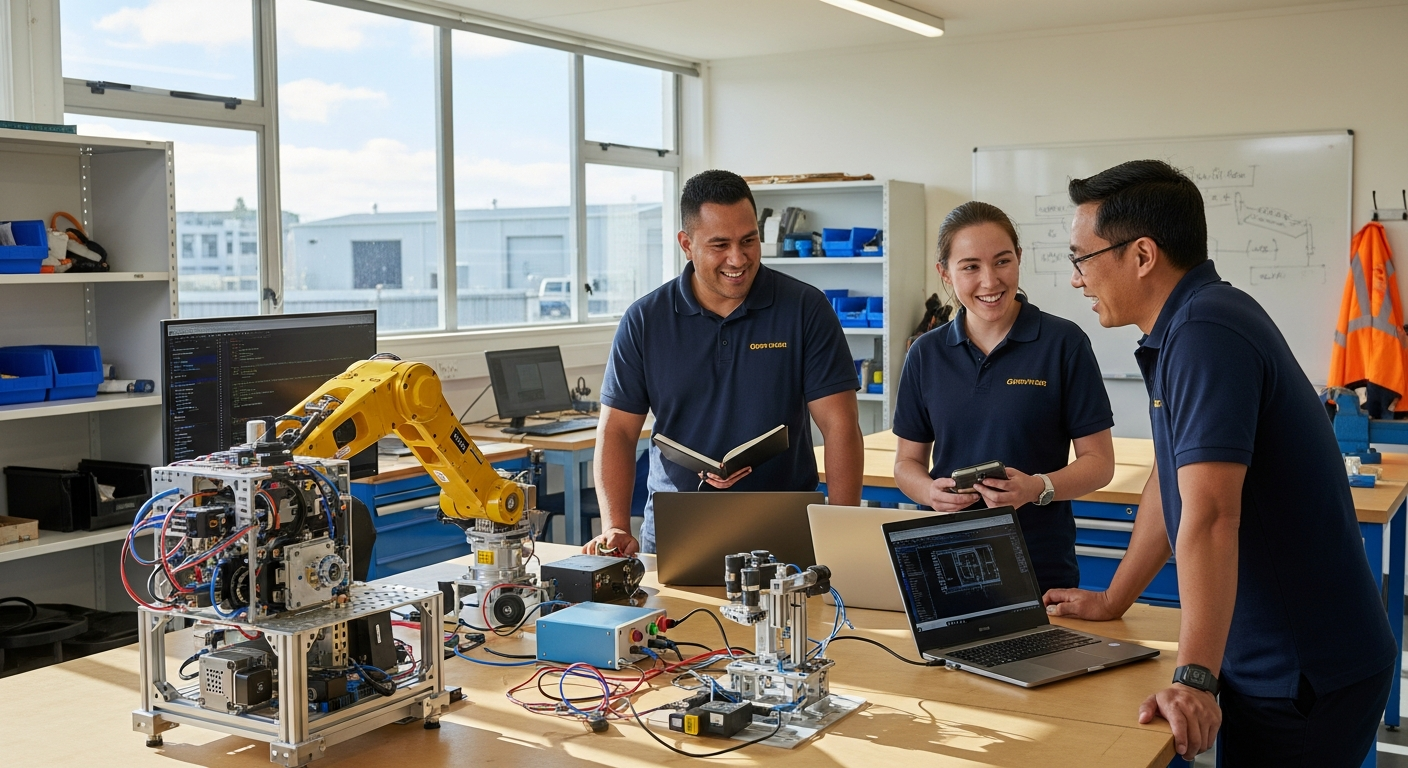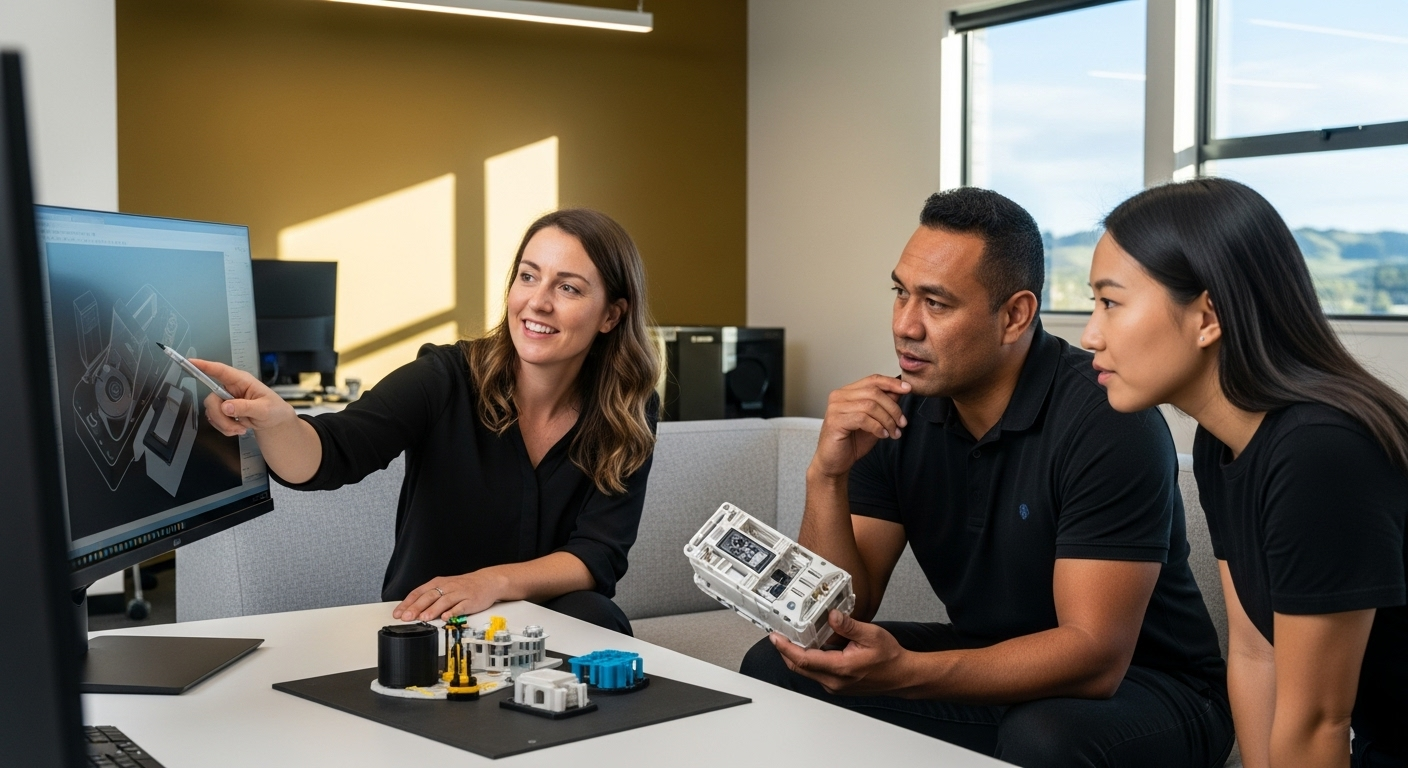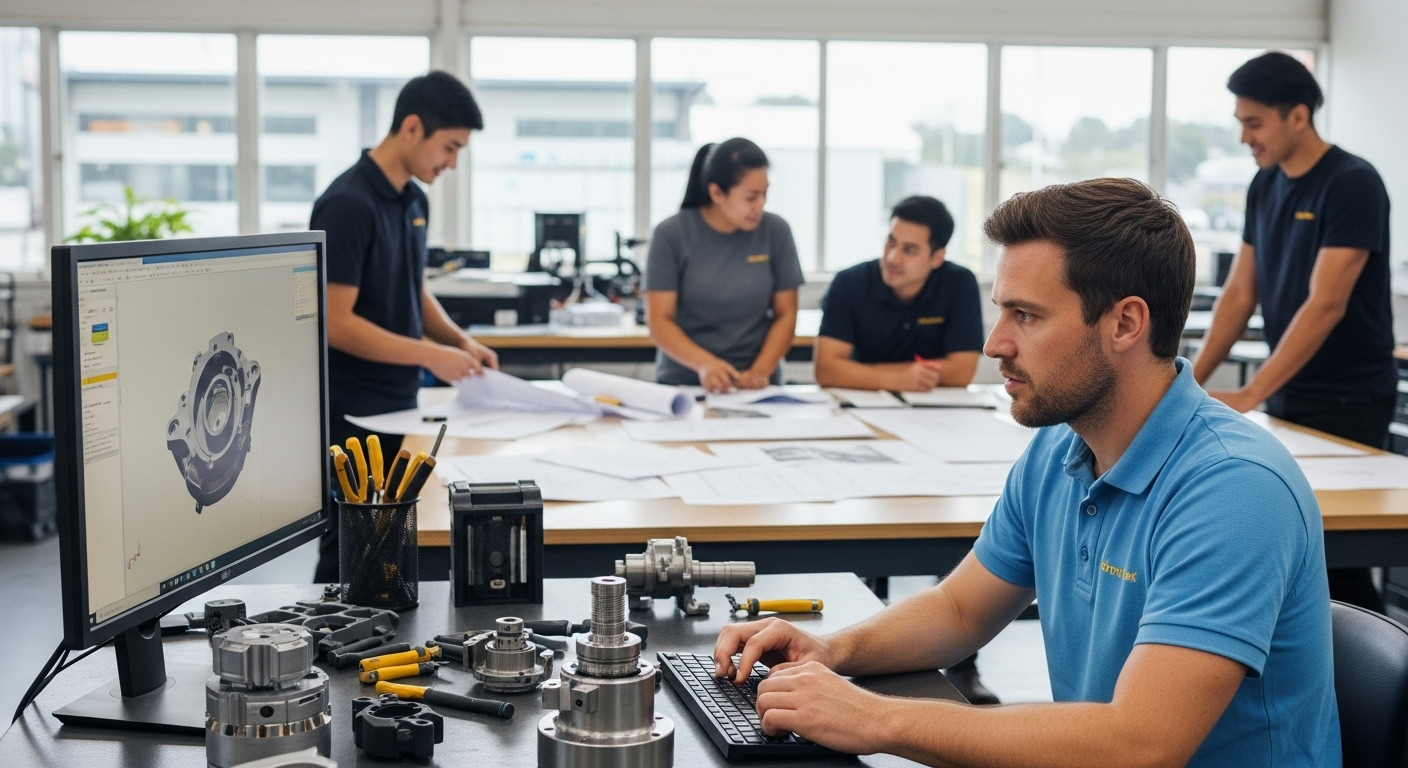Navigating the Manufacturing Process in New Zealand
Navigating the Manufacturing Process in New Zealand: A Mechanical Engineering Perspective
Bringing a product idea to life, especially one involving physical components and intricate designs, can feel like a massive undertaking here in New Zealand. The manufacturing process, from initial concept to finished product, involves numerous steps, critical decisions, and potential pitfalls. Understanding this journey and the crucial role of mechanical engineering in New Zealand is key to success. Whether you're a startup founder with a groundbreaking idea or an established business looking to improve production, getting it right requires careful planning and often, expert guidance.
The path involves design, prototyping, testing, compliance, and finally, full-scale manufacture. Each stage demands precision, technical knowledge, and an understanding of the local industry landscape. This is where the expertise of a skilled mechanical engineer becomes invaluable. At Nexus, we've seen firsthand how involving an experienced engineer early on can streamline the process, prevent costly errors, and ultimately lead to a better product. It really pays to have an expert in the field of mechanical engineering guiding you, ensuring your project benefits from innovation, quality, and compliance from the get-go.
What Exactly is Mechanical Engineering?
Mechanical engineering is a broad and vital engineering discipline focused on the design, analysis, manufacturing, and maintenance of mechanical systems. Think of anything with moving parts – from tiny components in medical devices to massive industrial machinery – and a mechanical engineer was likely involved. They apply principles of physics, materials science, and engineering mathematics to create solutions for a huge range of challenges.
In essence, a mechanical engineer designs, develops, builds, and tests mechanical devices, including tools, engines, and machines. Their work often involves understanding forces, energy, motion (thermodynamics, mechanics), and materials. In the New Zealand context, this translates to working across diverse sectors like agricultural technology, aerospace, building services (heating, ventilation), power generation, manufacturing and energy services, and robotics. They also investigate problems and faults with existing systems, constantly seeking ways to improve efficiency, reliability, and performance – vital for any successful manufacturing operation.
The Typical Manufacturing Journey in NZ: Where Engineering Fits In
Navigating the manufacturing pathway involves several distinct phases. While every project is unique, a typical flow often looks like this, highlighting where mechanical engineering expertise is critical:
- Concept & Feasibility: Refining the initial idea. An engineer helps assess technical feasibility, potential challenges, and material options early on. This stage involves brainstorming and initial sketches.
- Design & Specification: This is core mechanical engineering work. Detailed 3D models, technical drawings, and material specifications are created using CAD software. This includes stress analysis, tolerance checks, and design for manufacturability (DFM).
- Prototyping: Creating physical models (prototypes) to test the design. This could range from simple mock-ups to functional prototypes using techniques like 3D printing or machining in an engineering workshop. The mechanical engineer oversees this crucial validation step.
- Testing & Iteration: Rigorously testing the prototype under real-world conditions. The engineer analyses performance, identifies weaknesses (problems and faults with machinery or components), and refines the design based on results. This iterative process ensures the final product meets requirements.
- Manufacturing Setup & Sourcing: Planning the production process. This involves selecting manufacturing methods (e.g., injection moulding, CNC machining), sourcing suppliers, designing tooling, and setting up quality control procedures. An experienced mechanical engineer can help study ways to improve manufacturing efficiency and select the right partners.
- Compliance & Certification: Ensuring the product meets all relevant New Zealand standards and regulations. This is critical for market access and requires thorough documentation and testing, often guided by the engineer.
- Full-Scale Manufacture: Overseeing the production run, managing quality control, and addressing any issues that arise on the factory floor. The engineer ensures the final products match the approved design and quality standards.
- Launch & Post-Launch Support: Bringing the product to market and potentially providing ongoing technical support or planning for future product iterations.
As you can see, the mechanical engineer is deeply involved throughout. Having a partner like Nexus, a specialised consultancy, means having an expert guiding you through each phase, ensuring technical rigour and helping you make informed decisions, potentially saving significant time and cost.
Key Considerations for Manufacturing Success in New Zealand
Successfully bringing a product to market in NZ involves more than just a good design. Several key factors need careful consideration:
- Innovation & Technology: New Zealand's industry thrives on innovation. Leveraging the latest technology, materials, and manufacturing processes (like advanced robotics or sustainable design principles) can provide a competitive edge. An innovative mechanical engineer stays abreast of these trends.
- Compliance is Non-Negotiable: Meeting NZ standards for safety, quality, and environmental impact is essential. Failing to comply can lead to costly recalls or prevent market entry. Understanding the requirements and integrating them into the design from the start is crucial.
- Supply Chain & Logistics: Sourcing materials and components, managing suppliers, and handling logistics require careful planning, especially given New Zealand's geographical location. An experienced engineer considers these factors during the design phase.
- Cost-Effective Design: Good mechanical engineering isn't just about function; it's also about designing for cost-effective manufacture. This means selecting appropriate materials, minimising complexity where possible, and designing parts that are efficient to produce.
- Finding the Right Expertise: Partnering with the right mechanical engineer or consultancy is perhaps the most critical factor. Look for relevant work experience, a strong track record, and a collaborative approach. Nexus provides expert mechanical engineering consultancy tailored to the unique needs of businesses operating in New Zealand.
Common Questions About Mechanical Engineering in NZ
Many businesses and individuals considering product development or manufacturing often have questions about the engineering landscape in New Zealand. Let's tackle a few common ones:
Are mechanical engineers in demand in New Zealand?
Yes, absolutely. Mechanical engineers are consistently in demand across various sectors in New Zealand. There's a recognised skill shortage for experienced engineers, particularly in specialised areas like manufacturing and energy, infrastructure, agricultural tech, and building services. This demand creates significant job opportunities for qualified individuals. The role often appears on the skill shortage list relevant for immigration New Zealand, highlighting the national need. Finding the right engineer with the right qualification and relevant work experience is vital for many companies.
What is the salary of a mechanical engineer in New Zealand?
Salaries for mechanical engineers in New Zealand vary based on experience, qualification (e.g., a New Zealand Diploma in Engineering, Bachelor's degree, Master's), location (like Auckland vs other regions), industry sector, and specific responsibilities. Graduate mechanical engineers typically start on competitive salaries, with significant increases possible as they gain experience and take on more senior roles or specialise. Experienced mechanical engineers working in high-demand fields or management positions can command substantial incomes. It's always best to research current salary benchmarks for specific roles and locations when considering jobs in new zealand.
How do you become a Mechanical Engineer in NZ? (Career Pathways & Study Options)
Becoming a mechanical engineer in New Zealand typically requires a formal qualification. Common pathways include completing a Bachelor of Engineering (BE or BEngTech) degree majoring in Mechanical Engineering from a university, or achieving a New Zealand Diploma in Engineering (Level 6) from a polytechnic or institute of technology. These programmes cover fundamental principles like mathematics, physics and chemistry, electronics and thermodynamics, materials science, and design. Many programmes offer hands-on learning in an engineering workshop environment and require relevant work experience through internships. Some institutions also offer online study options for flexibility. Entry requirements often include NCEA Level 3 with strong results in math and physics, or equivalent qualifications. Continuing professional development is also important throughout an engineer's career in the engineering profession.
Where can Mechanical Engineering take you?
A qualification in mechanical engineering opens doors to a wide array of career opportunities both in New Zealand and internationally (Australasia and beyond). Graduates can work in New Zealand in roles such as:
- Product Design Engineer: Creating new products and improving existing ones.
- Manufacturing Engineer: Optimising production processes and managing factory operations.
- Project Engineer/Manager: Overseeing engineering projects from start to finish.
- Maintenance Engineer: Ensuring machinery and plant engineering systems run efficiently and reliably.
- Building Services Engineer: Designing heating, ventilation, and air conditioning (HVAC) systems.
- Consulting Engineer: Providing expert advice to clients across various industries (like the consultancy services Nexus offers).
- Specialist roles in areas like robotics, aerospace, automotive, marine, agricultural engineering, or energy services.
The field offers diverse career options in both large companies employ people across the workplace and smaller, specialised firms, providing a dynamic and rewarding career path for those interested in how things work and solving real-world problems.
Why Partner with an Expert Mechanical Engineering Consultancy like Nexus?
Navigating the complexities of product design and manufacturing requires more than just technical skill; it requires strategic insight and practical experience. This is where partnering with an expert mechanical engineering consultancy like Nexus makes a significant difference.
An experienced consultant brings a wealth of knowledge gained from diverse projects across various industries. They understand the common pitfalls – the subtle design flaws, the inefficient manufacturing steps, the compliance hurdles – and know how to avoid them. They can help you study ways to improve manufacturing, implement cutting-edge technology like robotics, and ensure your product is not only functional but also cost-effective and market-ready.
Working with Nexus means you have a dedicated mechanical engineer focused on your project's success. We act as your guide through the entire process, from refining your initial concept to overseeing final production. Our goal is to de-risk your project, accelerate your time-to-market, and ensure the final product meets the highest standards of quality and innovation. We help you manage everything from detailed design using advanced knowledge of physics and materials, to navigating the intricacies of the industry and ensuring compliance. Choosing the right partner is crucial; explore how Nexus’s mechanical engineering expertise can benefit your next project in New Zealand.
Conclusion: Your Path to Manufacturing Success
The journey from idea to manufactured product in New Zealand is complex but achievable with the right approach and expertise. Mechanical engineering lies at the heart of this process, transforming concepts into tangible realities through skilled design, analysis, and problem-solving. Understanding the stages involved, key considerations like compliance and innovation, and the vital role of an experienced engineer is fundamental to success.
Whether you're developing agricultural machinery, consumer electronics, medical devices, or industrial equipment, partnering with a knowledgeable mechanical engineer or consultancy can make all the difference. They provide the technical rigour, industry insights, and strategic guidance needed to navigate the challenges, avoid costly mistakes, and ultimately bring a successful, high-quality product to market. If you're embarking on a project requiring mechanical engineering New Zealand expertise, consider leveraging the skills of specialists to ensure your vision becomes a reality.
Disclaimer: The information provided in this article is for general guidance only. Specific engineering projects require detailed analysis and consultation with qualified professionals. Salary information is indicative and subject to change. Always consult directly with educational institutions for the latest programme details and entry requirements.








